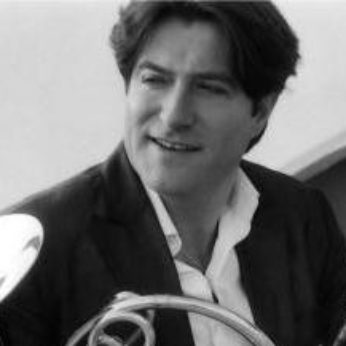The subject is Night: the lengthening shadow, the distant bugle at sunset, the Baroque panoply of the starry sky, the heavy angels of sleep; but also the cloak of evil – the worm in the heart of the rose, the sense of sin in the heart of man. Edward Sackville-West on Britten’s Serenade.
I’ve practically completed a new work (6 Nocturnes) for Peter and a lovely young horn player Dennis Brain and Strings…It is not important stuff, but quite pleasant, I think. Britten about Serenade
In performance, the piece, at first sight no more than an anthology of favourite English poems, has all the dramatic assurance of a Schubert song cycle, with a shrewd patterning of tension and release and a submerged sense of decay which manifests itself even at the outset as the day grows old. Ian Bostridge on Serenade
…dying, dying, dying, dying, dying, dying. from Tennyson’s Nocturne, text of Serenade.
It was 1943 – Britten and Pears, both conscientious objectors, had been spared non-combatant duties, but all over the world soldiers and civilians were being slaughtered in their millions. As Bostridge points out, the cycle initially seems to be a hotch-potch of very English poems partly inspired by the very English landscape paintings of Constable, which Britten had been studying. Did this perhaps start out as a kind of exercise in musical landscape painting to boost war-time morale? Certainly that very English atmosphere lingers in the poems but the music totally changes the focus of the poems.
Charles Cottons’ idyllic Pastoral grows a mood of world-weariness, the fading day becomes a metaphor for decline and fall, described by tenor and horn in an exquisite duet. Tennyson’s Romantic tale of castles and Elfland becomes almost sinister with the bugle’s repeated echoes’ dying fall. The interpretation of Blake’s short poem is made bitterly clear by the horn’s introduction and postlude. This leads to the heart of the cycle, the Dies Irae, the dance of death itself in the words of the fifteenth-century Lyke Wake Dirge with its mortal terror of the Day of Judgement.
Ben Jonson’s high-spirited invocation to the moon goddess Diana lights the way to Keats’ O soft embalmer of the still midnight, by a long way the greatest of the chosen texts. Here the poet’s words coincide exactly with the composer’s death-laden music sealing the hushed casket of his soul with the horn’s off-stage farewell.
